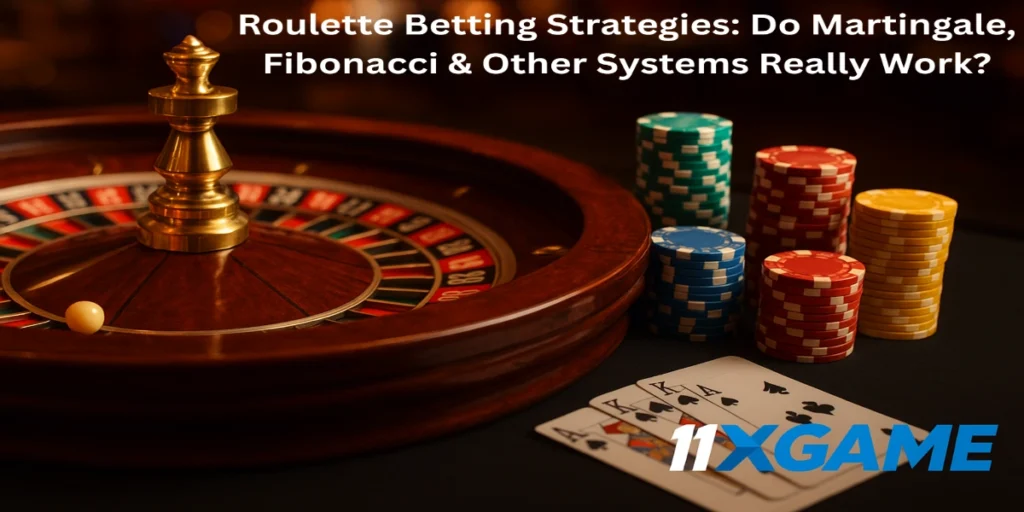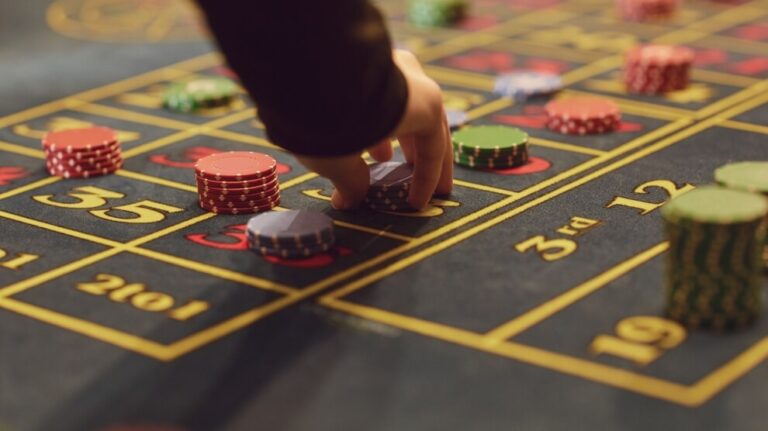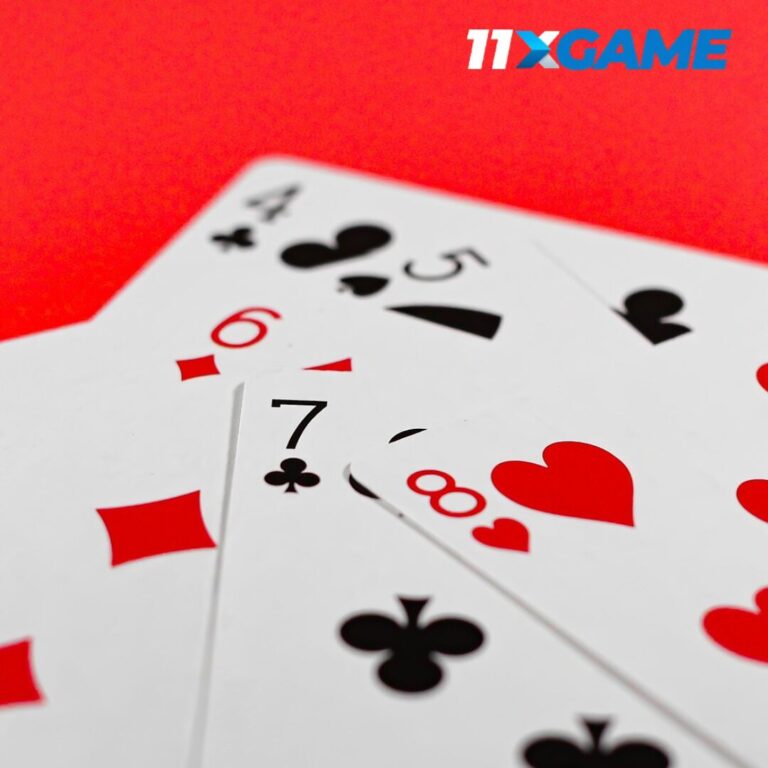Roulette Betting Strategies: Do Martingale, Fibonacci & Other Systems Really Work?
🎲 Introduction
Roulette is one of the most iconic casino games in the world. With its spinning wheel, bouncing ball, and multiple betting options, roulette has fascinated gamblers for centuries. From the grand casinos of Monte Carlo to modern online platforms, the game remains a favorite among casual players and serious bettors alike.
But along with its popularity comes a question that almost every roulette player has asked at some point:
👉 “Can betting strategies like Martingale, Fibonacci, or Labouchere actually beat the wheel?”
In this ultimate guide, we’ll take a deep dive into roulette betting systems, explore their math and psychology, and uncover whether they offer a genuine path to profits—or if they’re just entertaining illusions.
⚙️ How Roulette Works
To understand strategies, we first need to know the basics of roulette. The game revolves around a wheel divided into numbered slots, typically 0–36 in European roulette and 00–36 in American roulette.
- European Roulette: 37 numbers (0–36), house edge = 2.7%.
- American Roulette: 38 numbers (0–36 + 00), house edge = 5.26%.

Players can place different types of bets:
- Inside Bets: Specific numbers or small groups of numbers (higher payout, higher risk).
- Outside Bets: Red/Black, Odd/Even, High/Low (lower payout, safer bets).
The house always keeps its edge because payouts are slightly lower than true odds.
📊 Why Strategies Exist
Roulette strategies are not about changing the outcome of the wheel (which is impossible in a fair game). Instead, they are about:
- Managing risk and reward.
- Controlling bankroll swings.
- Trying to overcome short-term variance.
- Providing psychological comfort to players.
Now let’s examine the most famous systems one by one.
🔴 The Martingale Strategy
The Martingale system is the most famous betting method in roulette.
✅ How It Works
- Bet on an even-money outcome (e.g., Red/Black).
- If you lose, double your bet.
- Keep doubling until you win.
- Once you win, return to the original bet.
📊 Example
- Initial bet: ₹100 on Red.
- Spin 1 → Lose. Next bet: ₹200.
- Spin 2 → Lose. Next bet: ₹400.
- Spin 3 → Lose. Next bet: ₹800.
- Spin 4 → Win. You win ₹800, which recovers all previous losses plus ₹100 profit.
⚠️ Problems with Martingale
- Table limits: Casinos set maximum bets to prevent endless doubling.
- Bankroll risk: A long losing streak can wipe out your balance.
- False security: While it looks safe short-term, the risk of ruin is real.
🔵 The Fibonacci Strategy
The Fibonacci sequence is a series of numbers where each new number equals the sum of the two before it (1, 1, 2, 3, 5, 8, 13…).
✅ How It Works
- Bet follows the sequence after each loss.
- If you win, move two steps back in the sequence.
- Goal: Gradually recover losses without huge jumps like Martingale.
📊 Example
- Sequence: 1–1–2–3–5–8.
- Bet ₹100 → Lose. Next bet = ₹100.
- Lose again → Next bet = ₹200.
- Lose again → Next bet = ₹300.
- Win → Drop two steps back → Bet ₹100 next round.
⚠️ Problems
- Slower recovery compared to Martingale.
- Still vulnerable to long losing streaks.
- Profit margins are slim.
🟢 The D’Alembert Strategy
Named after French mathematician Jean le Rond d’Alembert.
✅ How It Works
- Bet a base unit (say ₹100).
- If you lose, increase by one unit.
- If you win, decrease by one unit.
- It’s a gentler progression than Martingale.
📊 Example
- Bet ₹100 → Lose. Next = ₹200.
- Lose again → Next = ₹300.
- Win → Drop back to ₹200.
⚠️ Problems
- Recovery can be slow.
- Long streaks still dangerous.
🟡 The Labouchere System (Cancellation System)
The Labouchere system (also called “split martingale”) is more complex.
✅ How It Works
- Choose a sequence of numbers (e.g., 1–2–3).
- First bet = sum of first and last numbers (1+3=4 units).
- If you win, cross out the first and last numbers.
- If you lose, add the amount you just bet to the end of the sequence.
📊 Example
- Sequence = 1–2–3.
- Bet = 1+3=4. Lose → Sequence becomes 1–2–3–4.
- Next bet = 1+4=5.
⚠️ Problems
- Can grow uncontrollably during bad streaks.
- Requires discipline and tracking.
🟠 The Paroli System (Reverse Martingale)
Paroli is the opposite of Martingale.
✅ How It Works
- Increase bets after wins, not losses.
- Aim to ride winning streaks.
📊 Example
- Bet ₹100 → Win. Next bet = ₹200.
- Win again → Next bet = ₹400.
- If you lose, reset to ₹100.
⚠️ Problems
- Relies heavily on rare winning streaks.
- Risk of losing accumulated profits on a single loss.
📉 Why All Systems Fail Long-Term
Every system sounds smart, but in reality:
- The House Edge Never Changes – No matter how you bet, European roulette has a 2.7% edge.
- Bankroll Limitations – Most strategies assume “infinite money,” which no player has.
- Casino Table Limits – Rules stop you from betting endlessly.
- Psychological Stress – Chasing losses leads to panic and poor decisions.
🎮 Online vs Live Roulette Strategies
- Live Casino Roulette → Slower pace, allows time for strategy but limits spins per hour.
- Online Roulette → Faster spins, higher risk of burnout, but easier to test systems.
- Auto-Roulette → Extremely fast; risky for progression strategies.
💡 Common Mistakes Roulette Bettors Make
- Believing in “hot” or “cold” numbers.
- Thinking systems can guarantee profit.
- Ignoring bankroll management.
- Over-betting after small wins.
- Falling for the gambler’s fallacy (thinking past results affect future spins).
🧠 Psychology of Roulette Strategies
Roulette betting systems work more as psychological tools than profit machines. They:
- Give structure to betting.
- Reduce anxiety by offering a “plan.”
- Provide short-term wins that feel satisfying.
But in the long run, they cannot overcome mathematics.
(This article is for informational purposes only. Gambling involves risk. Please bet responsibly.
Always check local laws before playing & follow the law.)
✅ Final Thoughts
Roulette is a game of chance, not skill. While strategies like Martingale, Fibonacci, and Labouchere are fascinating and provide structure, they cannot beat the house edge permanently. They are best seen as entertainment tools—ways to enjoy roulette without randomly betting.
If you want to play responsibly:
- Set strict bankroll limits.
- Understand the math behind strategies.
- Play for fun, not guaranteed profit.
❓ FAQ Section
Q1. Can any roulette strategy guarantee wins?
No. All systems eventually lose to the house edge.
Q2. Which system is safest for beginners?
D’Alembert or Fibonacci, as they grow bets slower.
Q3. Is European roulette better than American?
Yes, because the house edge is lower (2.7% vs 5.26%).
“For more educational resources and responsible gaming tips, visit 11xGame to stay informed and safe while enjoying your favorite sports.”






